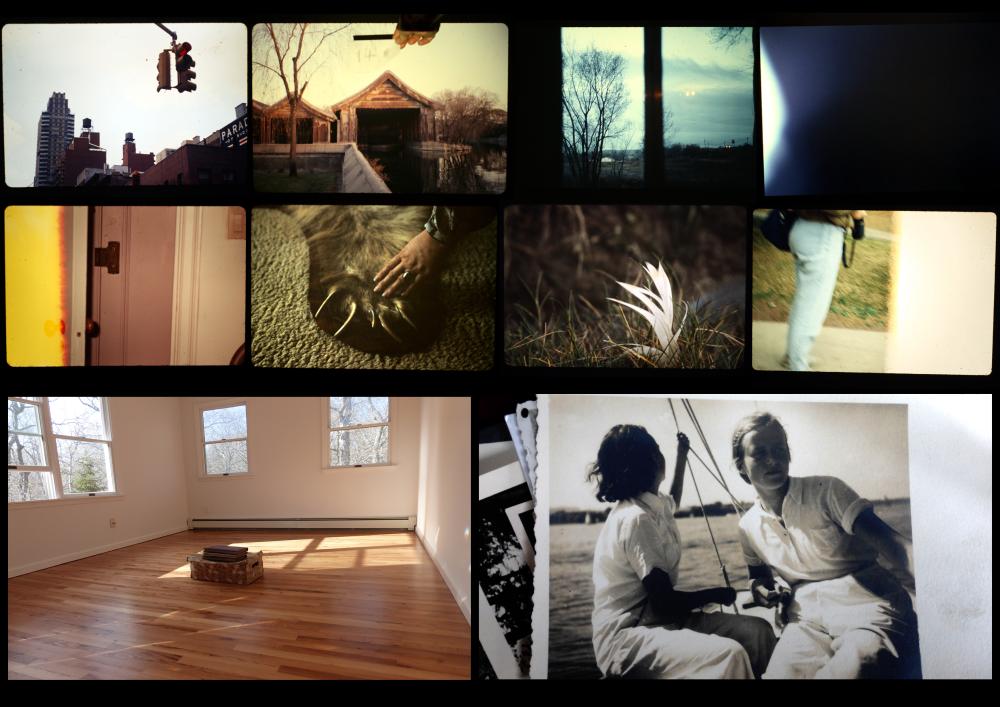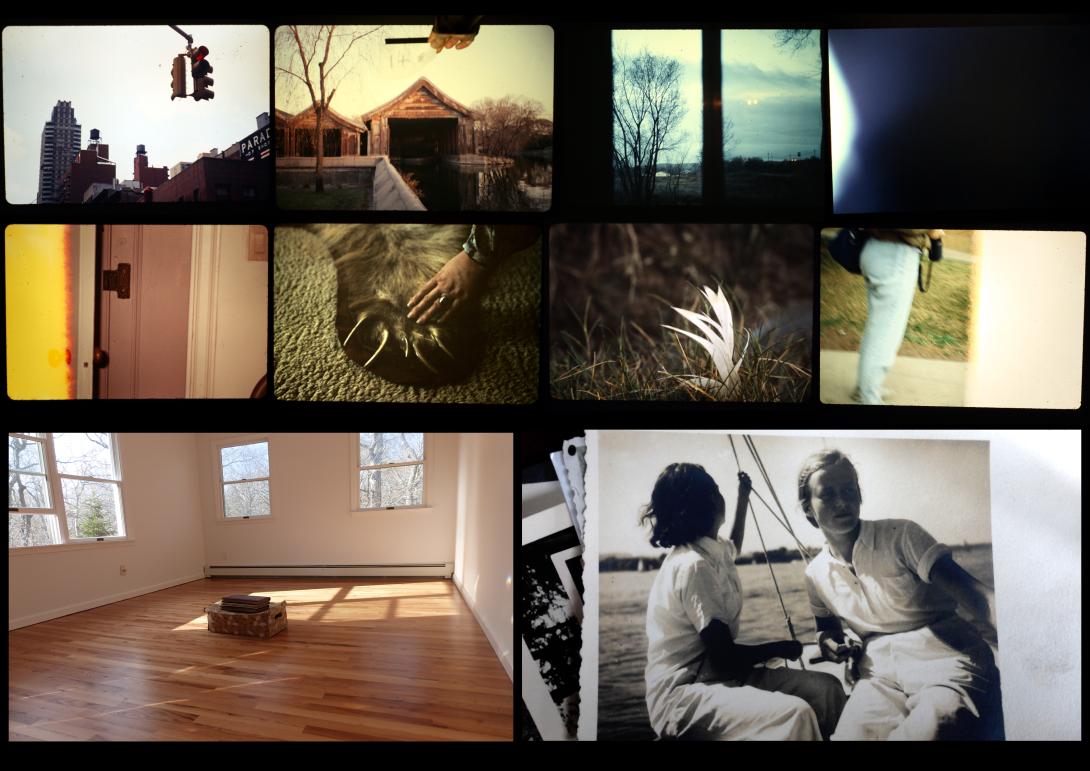THE STORY OF ONE’S LIFE IS NEVER A SINGLE STORY
Katja Dreyer on 'Ophelia comes to Brooklyn'
How to tell someone’s story based on an inheritance, when you still have to discover who this person actually was? And what happens when you are personally related to this person? An interview with Katja Dreyer on Ophelia comes to Brooklyn.
Katja Dreyer in a written conversation with Eva Decaesstecker (Kaaitheater, 24/09/2018)
How to tell someone’s story based on an inheritance, when you still have to discover who this person actually was? And what happens when you are personally related to this person? When theatre maker Katja Dreyer started to work with the letters, poems, and objects she inherited from her aunt Antje Katcher, she decided that one storyline wouldn’t be enough to show what’s at stake. By staging the play Katcher wrote herself in 1982, Katja tries to get closer to her aunt: ‘A story always tells as much about the one telling it as the one that is talked about.’
Knowing that your family wasn’t very close with Antje Katcher, how come you inherited her artistic belongings?
It must be a very peculiar moment in your life, when you are facing your own death you have to decide what happens to all your belongings. As an economical analyst she believed in distributive justice. I guess she might have wanted to organize her death according to this principle: her pension plan and her apartment on the Upper West Side was split between the five children of her brother and sister, as she didn’t have children herself; her house went to her church and the activist community, her car to a family in need, her record collection to her best friend, and her mask collection to my younger brother. She organized a fleamarket to sell her furniture and gave the money to charity.
So I wasn’t the only one of the family heriting something from her. I guess she felt some kind of kinship between us, which is why she gave me her artistic traces.
How much did you know about her work? And did she knew about yours?
I did not know much about her work at all. Communication has been a difficult thing within the family, which according to me has to do with the generation I am part of: the post-post-World War II generation. Talking about the past of one’s own family in detail is somehow not done or maybe even not possible. The past is a blurr.
We knew about each other’s work, but never took the effort to dig deeper into it. I knew that the Aunt In New York was ‘doing something with poetry’. Once I met her in New York when I was there to perform. I invited her to see me in Ivana Müller’s While we were holding it together, which she enjoyed a lot. I remember seeing her in the audience looking at me! I had also written her when I did the research for my last project KRONIEK to ask about her experiences as a German expat in New York in the sixties. She did not consider her experiences as very valuable, so she sent me one of her poems instead.
Katcher had a very eclectic life, with multiple identities: an activist, a banker analyst, a faithful Christian, an artist/writer. Does it also take three performers to tell her story?
I really wanted to have three performers to tell the story from different perspectives. For me there were three interesting voices: an American male voice, speaking from the outside about Mrs Katcher; the (imagined, reproduced) me; and the voice of her poetry. It felt right to have an American and another native German speaker on stage with me, considering the material we were looking at.
The number of characters in the theatre piece Ophelia comes to Brooklyn – which was part of my inheritance – played a rol, but not necessarily the most important one. The piece also works very well when staged by one person. We tried out a lot of setups for the piece: with reversed gender roles, with textbooks in our hands, as a solo… In the end we went back to the way we thought Katcher would have agreed on it. Doing the play and embodying her words are a way to get closer to the writer. To get under her skin, into her pen.
Community – meaning not being alone – became important to her at the end of her life. This enforced my choice to not be alone on stage, but to form a little stage community with three performers.
The title of your performance, Ophelia comes to Brooklyn, refers to the play you just mentioned. What is this theatre play of Katcher about?
It’s a play about female authorship and agency, as well as the attempt to do something meaningful – for yourself and the community – with your life. The two female characters in the play are both fighting with the roles that were written for them. They cannot and do not want to fulfill these roles anymore. In the play Katcher also speaks about traumas and the transformative and painful experience of reliving traumaswhen you feel powerless.
It doesn’t matter which traumas she lived through, as this piece is not to be sensational. Nonetheless, I am sure that writing and doing photography were ways for her to feel empowered, to feel alive, to transform her frustrations and traumas but also her thoughts and feelings into something concrete.
There have been some narrative shifts in how you got to know your aunt: first getting bits of information told by other people, meeting her briefly; then inheriting her belongings and thus getting another side of the story. But in the end all you can know about other family members is their stories and what everybody considers worth mentioning. How do you deal with this question of narratives and the lack of one clear ‘truth’?
First of all it is a shock to realize how little we know about the people in our own families. But once you are over the shock, it is fascinating to hear all the different versions of a person’s life. I would say the more diverse and contradictory the better. A story always tells as much about the one telling it as the one that is talked about. To accept that there is not one simple truth about anything or anyone is a big reliefthat allows playfulness and speculations into one’s own interpretations of life and how to live it. But if we believe that stories are important enough to be told, we should think about how to tell them and with which words, in order to understand what the story is actually about. Because the story of one’s life is never a single story.
The process of making this show was particular because I was researching my family history. This was interesting and meaningful for myself, but I knew all the same that I had committed to making something that was universally interesting for an audience. I had many ideas about what to do with the material but, at one point I understood I wanted to work around the relationship between her work and her life and how these two aspects talked with and about each other. What can you learn about a person by the things she left behind and how can you reveal this to an audience?

